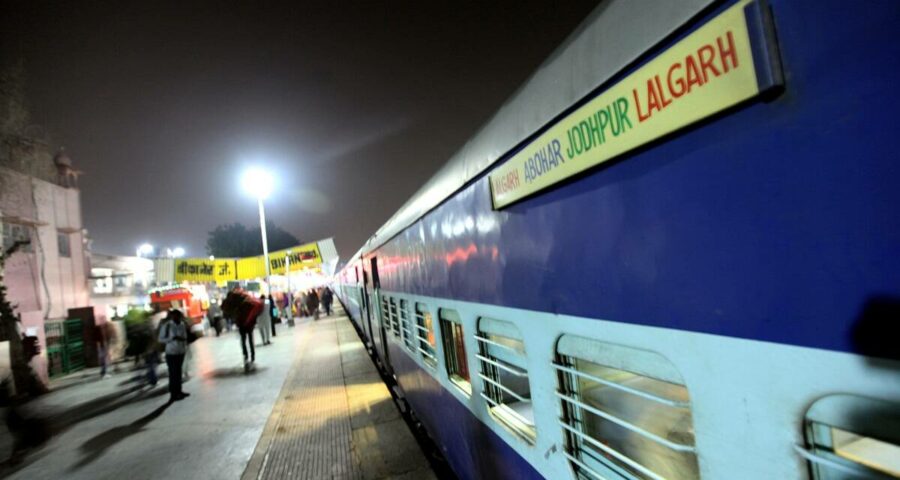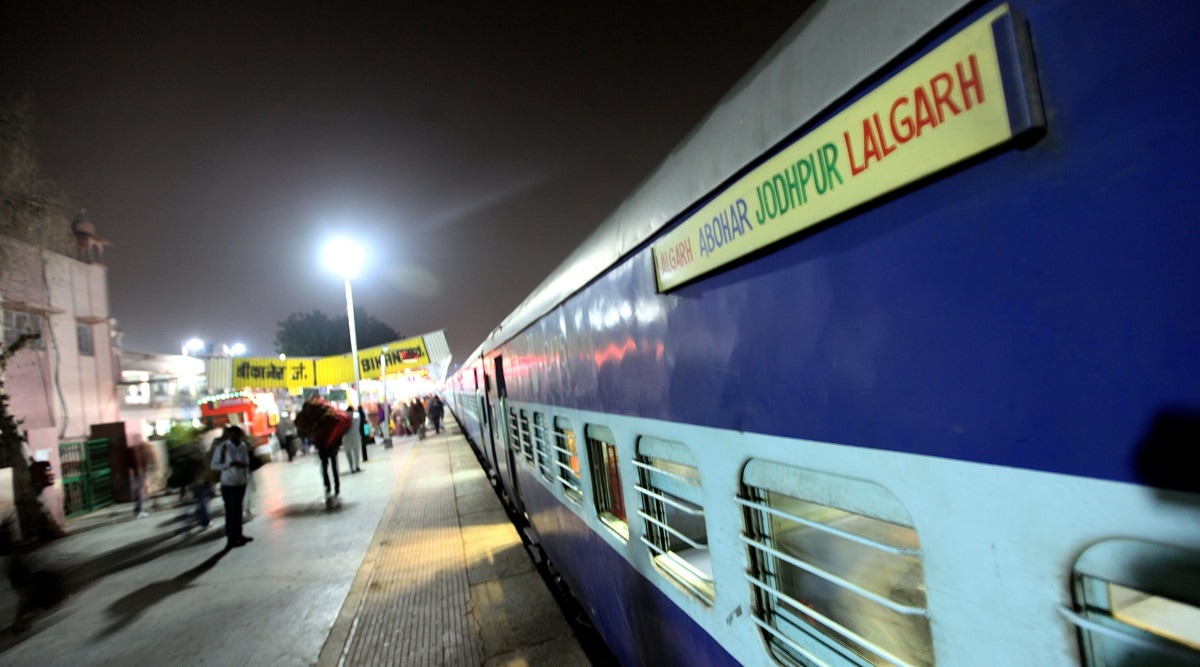According to estimates by Bikaner's Acharya Tulsi Regional Cancer Treatment and Research Institute, the daily inflow of patients from Punjab has plummeted to 5-10 from over 100 several years ago
Improving healthcare facilities in Punjab may soon allow the Abohar-Jodhpur passenger train to shed its morbid sobriquet of the ‘Cancer Train’.
Since 2018, the number of people from Punjab who boarded the train to seek treatment at Bikaner’s Acharya Tulsi Regional Cancer Treatment and Research Institute has sharply reduced. According to estimates by the cancer treatment facility, the daily inflow of patients from Punjab has plummeted to 5-10 from over 100 several years ago.
Hospital authorities peg the dwindling patient numbers from Punjab to an increase in healthcare facilities in that part of the state.
From 27.48 per cent of the total new out-of-state patients at the tertiary care centre in 2015, Punjab’s share dropped to 13.11 per cent in 2019 and a further to 9.09 per cent in 2020.
Dr Neeti Sharma, head of the Cancer department, said Punjab has improved its medical facilities to ensure patients don’t travel out of the state. In the last few years, Punjab has inaugurated state-run cancer hospitals at Bhatinda, Sangrur, Faridkot and Fazilka in the Malwa region, one of most affected areas by cancer, in the last few years.
“New patients from Punjab have reduced significantly. But we still receive follow-up patients who have been getting treatment, say since 2005 or 2010 or 2015, or those who are recommended by their families or relatives who had been treated here,” said Sharma.
With trains and public buses resuming after the second Covid-19 wave waned, the patient inflow has reached its pre-Covid level of around 50 new registrations and 300-350 follow-up cases daily.
In contrast, the hospital has seen a steady rise of patients from Uttar Pradesh, mostly from western parts of the state. UP’s share rose to 30.14 per cent in 2019 and 35.39 per cent in 2020 from 16.69 per cent in 2015. However, Haryana has remained the top state accounting for more than half of the new registrations over the last seven years.
Sharma said most UP patients are from the western part of the state and live along polluted stretches of the Ganga-Yamuna Doab region. “Among the poorest, most of them are from the minority community. A majority of them have gall bladder cancer (in contrast with the profile of cancer patients from Rajasthan and Haryana),” she said.
According to a Central Pollution Control Board (CPCB) report, UP has 12 river stretches polluted by untreated discharge of effluent and sewage. Of them, three of the four most polluting stretches in Hindon, Kali and Yamuna rivers are in western UP.
The National Green Tribunal (NGT) has in various orders said that polluting rivers have led to a high number of cancer cases in some villages along the Hindon and Kali rivers. In its report in February this year, an NGT-formed oversight committee criticised the state for its slow pace in installing treatment plants along the stretches. A National Cancer Registry Programme estimates 2,06,088 cancer cases, the highest in the country, in 2021.
Restrictions put in place due to the Covid-19 pandemic have also taken a financial and physical toll on many patients. Waiting for his wife Khushnabi’s turn for a radiotherapy session in the hospital, Muslimeen (47), a farmer from Amroha, said he has spent Rs 70,000-80,000 for five-six trips to Bikaner between January and May when trains were shut. His wife was diagnosed with breast cancer. “A farmer does not earn much. So we had to borrow from someone to pay for taxi services,” he added. With train services back on track, he says he can now afford to stay in the city a month for his wife’s treatment.
Opposite the hospital, a park is teeming with patients and their families. Lying on a bedsheet, 38-year-old Soni Rajput is writhing in pain after another session of radio therapy. “If there was no lockdown, we could have brought her here rather than going to Rishikesh in February. Her condition would not have worsened,” lamented her brother. With hospital passes, a cancer patient and one attendant have to pay 25 per cent and 50 per cent of the ticket price on trains and public buses.
“During lockdown, we would ask our patients to reach the nearest cancer institute and have us talk to doctors or nurses there. Accordingly, we would tell on phone what medicines to give… Those who could afford to hire cabs were allowed the interstate entry. They had to only show medical papers,” said Sharma.
The Indian Express also spoke to patients from Haryana. Baldeb Singh, 65, from Kaithal, has been visiting the hospital for seven years. “During lockdown, I had to hire a taxi two times for my radio therapy and paid Rs10,000 for each trip,” said the farmer, who prefers to travel by bus as he could not book railway tickets online. According to hospital authorities, OPD was shut only in April-June last year.
On being asked why the hospital remains a much sought-after institute, Dr H S Kumar, acting director of the institute, says: “From diagnosis to treatment to check-ups, all facilities are under one roof. For chemo-radio therapies and surgeries, patients don’t have to leave the campus. We also have a palliative care centre, and from next year, we will start a PG institute.”
Source: Read Full Article


